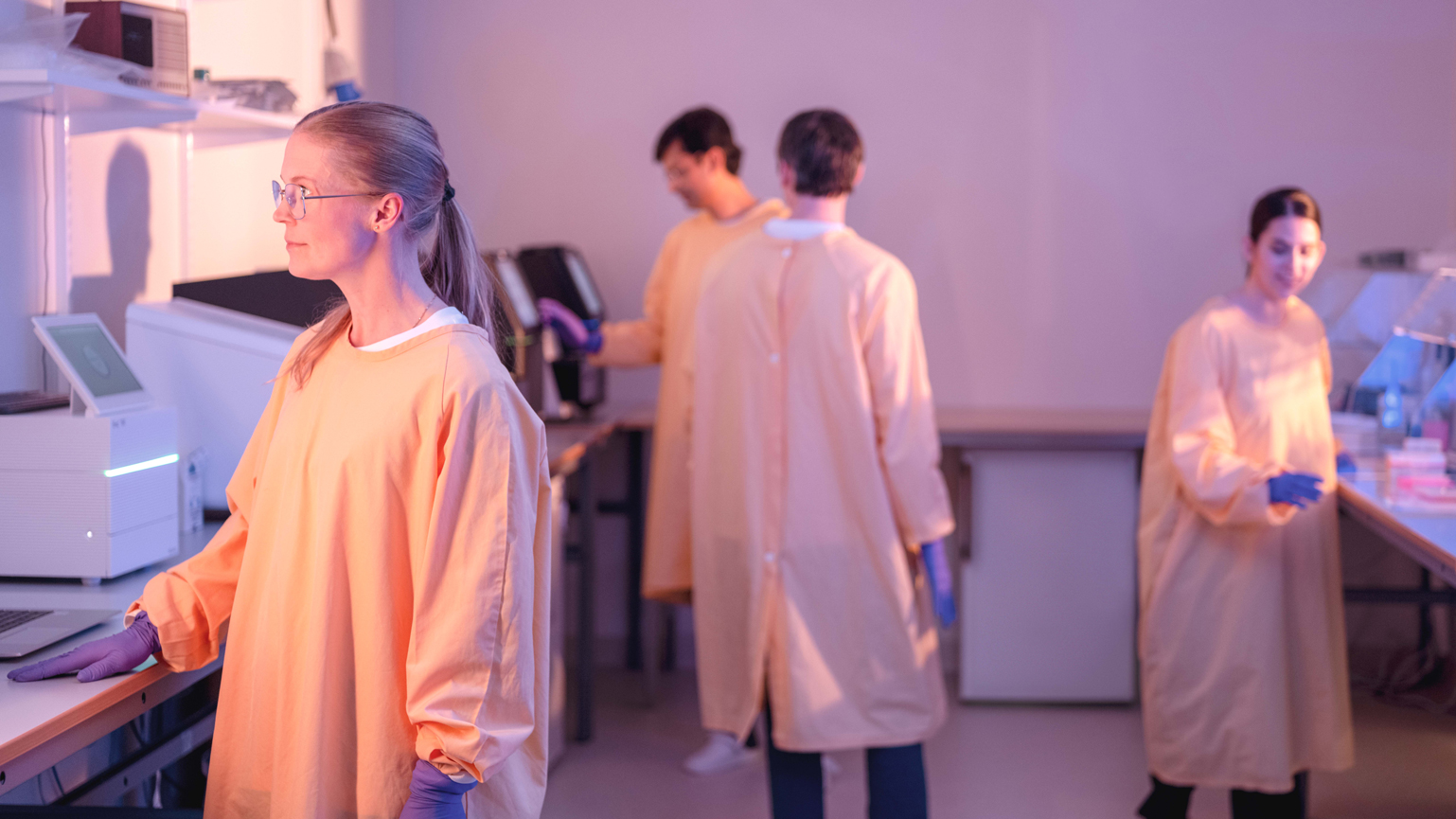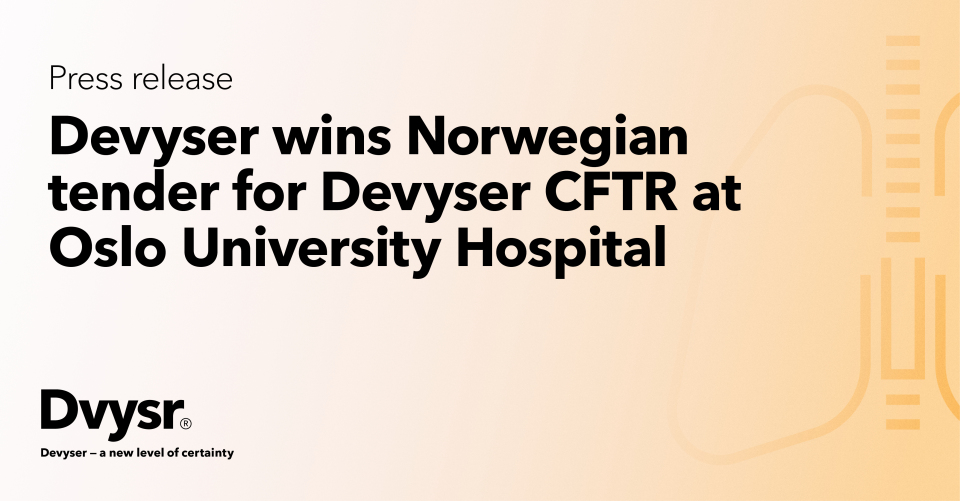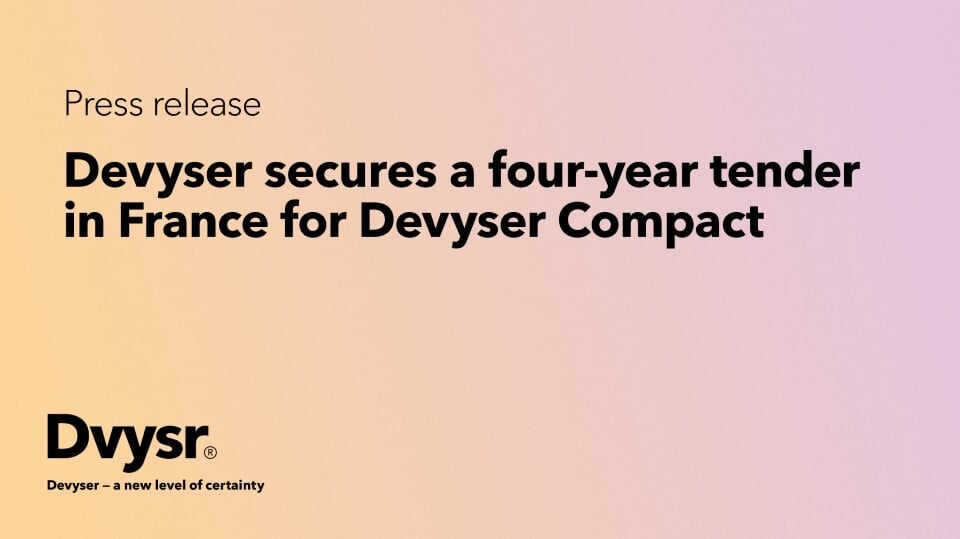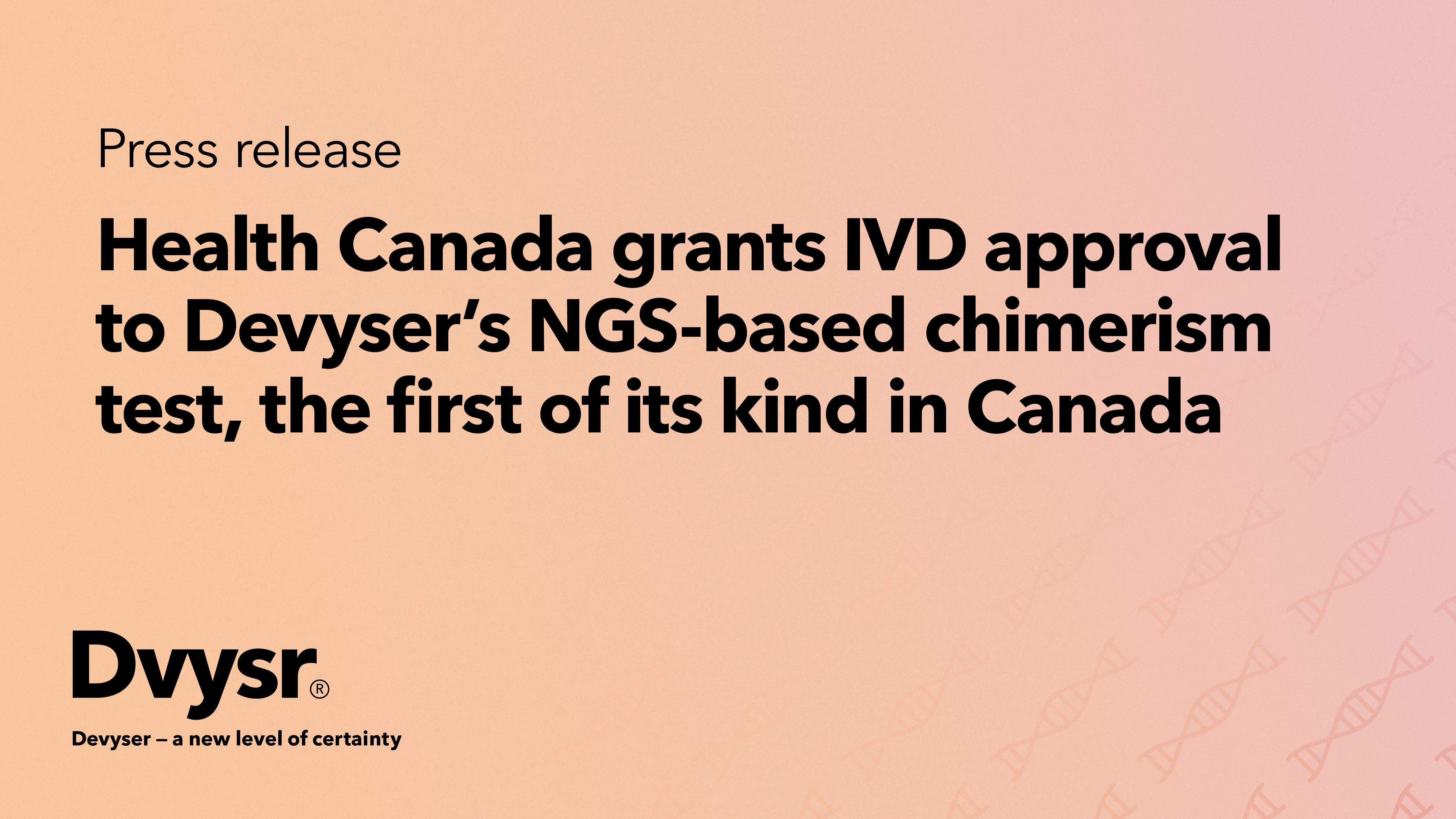Devyser enters Strategic Supply Agreement with Illumina to offer sequencing instruments and products
Devyser today announced that it entered a strategic agreement with Illumina, a global leader in DNA...
Cystic fibrosis

Cystic fibrosis | October 3, 2022
Cystic fibrosis is one of the most common genetic disorders. The disease is caused by mutations within the cystic fibrosis transmembrane conductance regulator gene (CFTR) leading to gradually decreasing lung function in affected patients.
Current treatment protocols include symptomatic treatments for cystic fibrosis and a CFTR potentiator (Ivacaftor), which increases CFTR channel opening at the cell surface, in combination with CFTR channel correctors (Lumacaftor and Tezacaftor), which increase the amount of CFTR protein at the cell surface. This combination regimen is currently the therapy of choice but cannot restore complete function of the CFTR protein and lacks effect in patients with the most common mutation, the Phe508del–mutation.
In two recent studies (1, 2), both published in the New England Journal of Medicine, two new small molecular CFTR channel correctors, VX-445 and VX-659 (both candidates from Vertex Pharmaceuticals), were evaluated for their functional and clinical effect in combination with Tezacaftor–Ivacaftor in patients with the Phe508del CFTR genotype. Both triple-treatments demonstrated increased CFTR function in vitro, with few severe adverse events, no dose-limiting toxicity, and additionally led to significant clinical improvements in patients with cystic fibrosis with one or two Phe508 deletions. These clinical trials further highlight the importance of complete CFTR mutation detection in cystic fibrosis patients to improve treatment options and outcome as new targeted treatments become available.
References:

Devyser today announced that it entered a strategic agreement with Illumina, a global leader in DNA...
Read More

Devyser is proud to announce that the company has been awarded a tender by Oslo University Hospital...
Read More

Devyser, a leading provider of advanced genetic testing solutions, has been awarded a new tender in...
Read More

Devyser is proud to announce that One Lambda Devyser Chimerism and Advyser Chimerism have been...
Read More